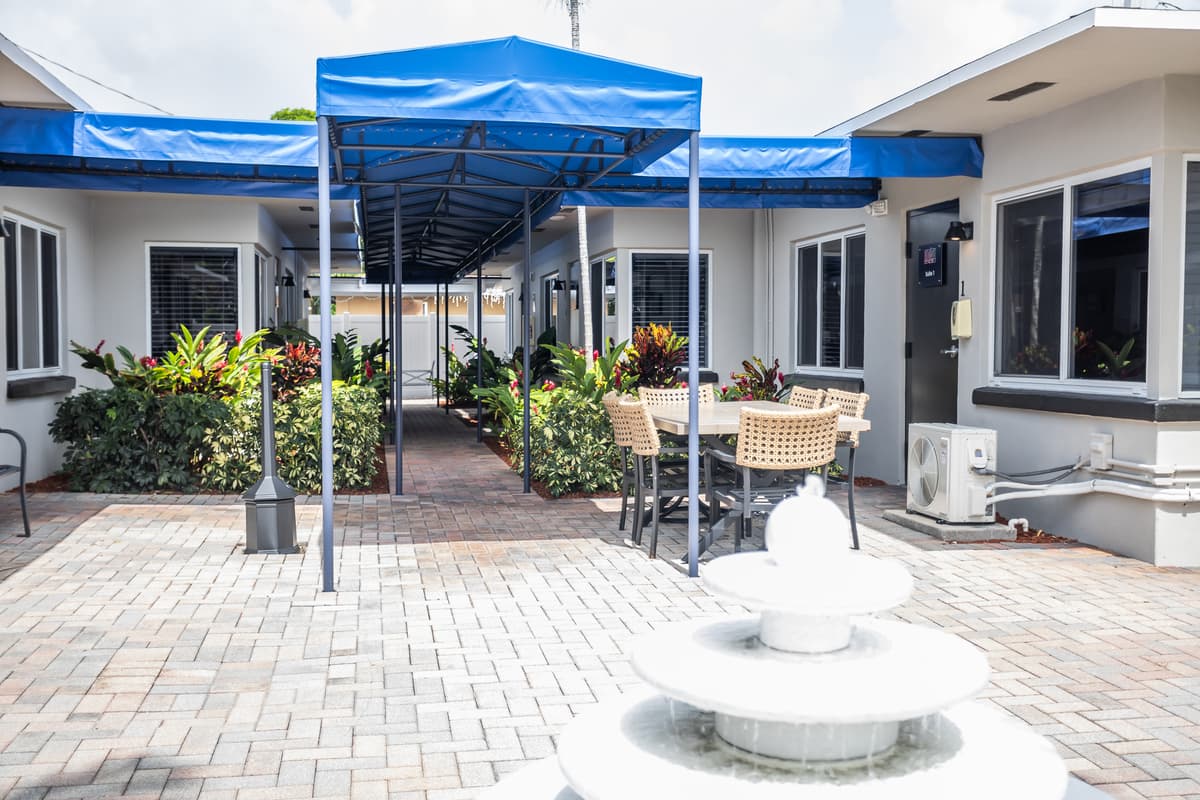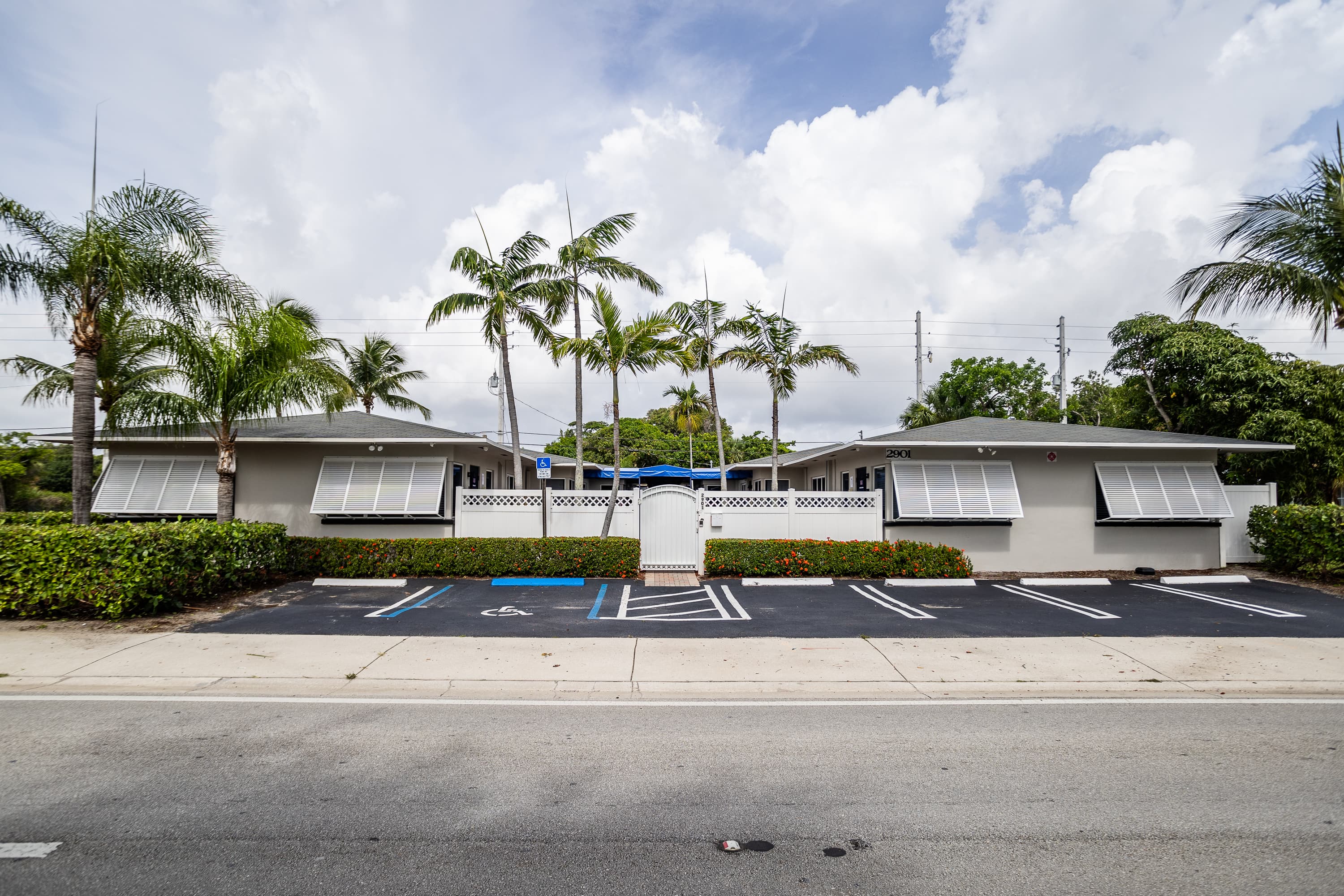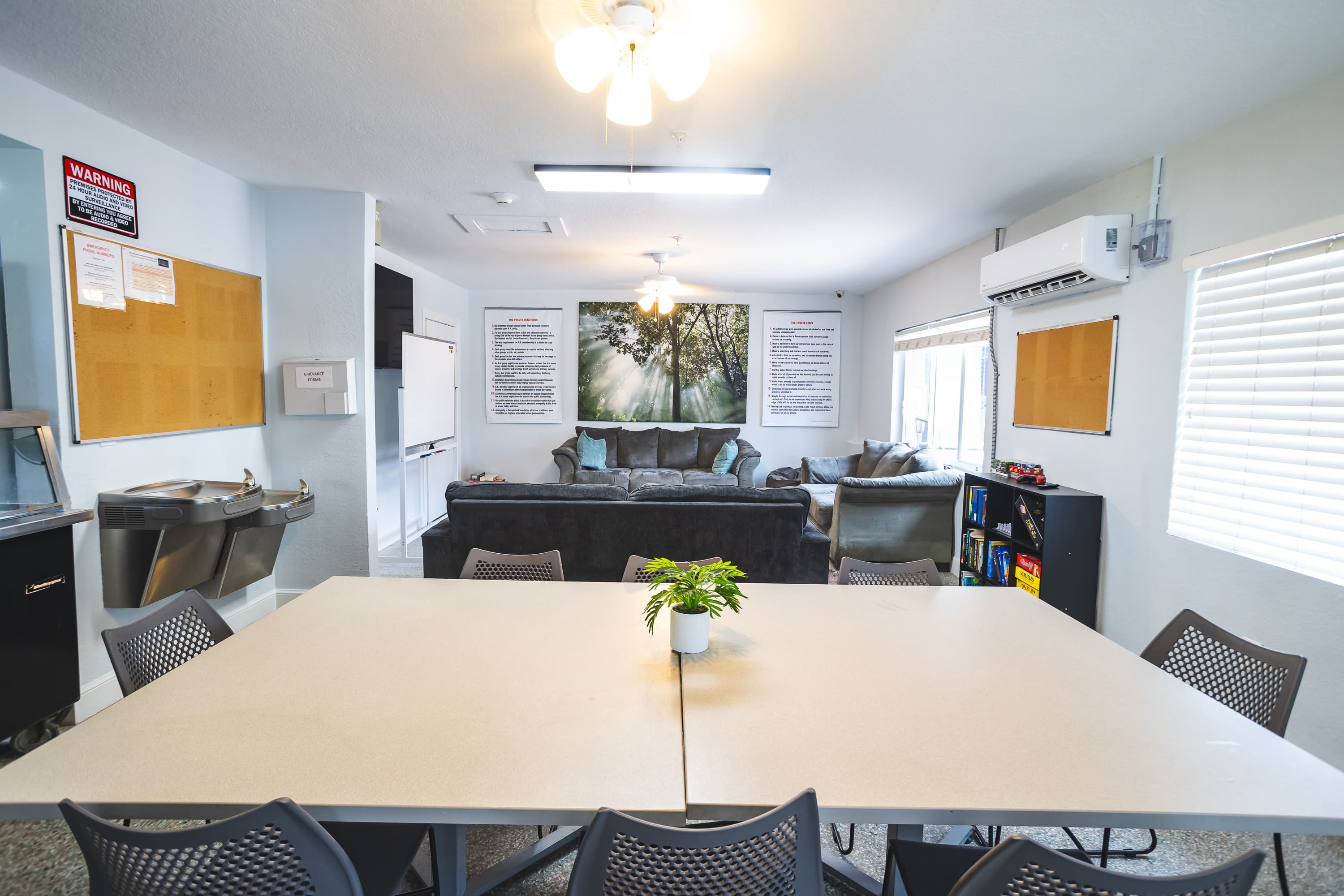Loading...
Loading...
Evidence-based addiction treatment in the heart of West Palm Beach. Our compassionate team provides medical detox, residential care, and dual diagnosis treatment in a peaceful tropical setting.
24/7
Medical Care
100%
Confidential
Same Day
Admission
Location
West Palm Beach, FL
Beds Available
From medical detox to long-term residential care, we provide a continuum of services tailored to your unique recovery needs.
 24/7 Care
24/7 CareRound-the-clock medical supervision with evidence-based comfort protocols. Safe withdrawal management for alcohol, opioids, and benzodiazepines.
Learn more about Medical Detox Low Ratio
Low RatioImmersive recovery in a supportive coastal environment. Structured daily programming with therapy, nutrition, and wellness activities.
Learn more about Residential Treatment Expert Staff
Expert StaffIntegrated treatment for co-occurring mental health conditions. Address the root causes of addiction with trauma-informed care.
Learn more about Dual DiagnosisWe understand that addiction affects individuals differently. Our gender-specific programs create safe spaces for focused, empathetic care.

Our women's rehab program addresses the unique challenges women face in addiction and recovery. We create a safe, supportive environment where women can connect, share experiences, and receive compassionate guidance.

Our men's rehab program is tailored to the specific needs of men in recovery. We provide a setting where men can openly discuss experiences and receive support from peers who understand their journey.
We combine rigorous medical protocols with the natural healing power of our South Florida location. Our approach is professional, compassionate, and designed around your individual needs.
In the heart of West Palm Beach, our location provides natural tranquility that supports your recovery journey.
Same-day arrivals, insurance coordination, and transportation support so you can focus on healing.
Small, intentional groups ensure personalized attention from our licensed clinical team.

Experience
Compassionate Care
The numbers show why treatment matters now more than ever. Recovery is possible—and we're here to help.
18%
of Florida adults binge drink at least once per month
79%
of opioid deaths in FL were caused by fentanyl (2021-2023)
5,000+
overdose deaths in Florida annually
Don't become another statistic. Get help today.
Get Help NowOur West Palm Beach facility provides the perfect backdrop for your recovery journey.



Simple 3-step process
Speak with our admissions team. We'll verify insurance and answer all your questions.
Medical intake and personalized detox protocols to keep you safe and comfortable.
Comprehensive treatment with therapy, wellness, and aftercare planning.
We work with most major plans
Don't see your insurance? No problem. Our team verifies benefits quickly and explains your coverage before arrival.
Taking the first step is the hardest part. Our admissions team is available 24/7 to answer your questions and help you begin the healing process.
Confidential. Compassionate. Available when you need us.